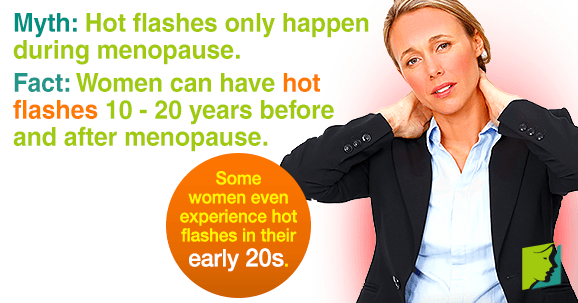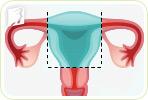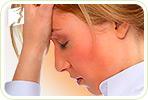Hot flashes in women are extremely common during menopause. In the midst of all of the other menopausal difficulties, such as mood swings and low libido, the last thing you want is your body to feel like a boiling cauldron. When sweat starts to pour, you may be soon seeking relief.
It is important, then, to understand the myths and facts about this aggravating condition. Many women have many misconceptions as to the causes, symptoms, and treatments for menopause, which generates confusion when it comes to the healing process. Educate yourself.
Myth: Hot Flashes Only Happen during Menopause
Fact: Women can have hot flashes 10 - 20 years before and after menopause. Although it is most typically understood that women experience hot flashes during perimenopause - the years of transition before menopause up until their last period - this isn't always the case. Every women is different, some women even experience hot flashes in their early 20s, while other women complain about the scorching inner heat all the way into their 70s.
Myth: They Are Solely Hormonal
Fact: There are many causes and triggers for hot flashes in women. It is true that the principle cause of hot flashes during menopause is hormonal imbalance, particularly the sharp reduction in estrogen, which throws off a women's internal body thermostat. There are, however, other lifestyle and dietary choices that can trigger the episodes.
For one, individuals who drink excessive amounts of alcohol or smoke are found to experience intense hot flashes at any point in their life. There are also those with nutrient deficiencies who can experience severe, frequent, and long-lasting episodes.
Myth: Hormone Replacement Therapy Is the Best Treatment
Fact: Herbal remedies are safer in the long term. Hormone replacement therapy (HRT) has provided some notable results for hot flashes in women, but it can take a toll on your body. These artificial pills have potential side effects such as fever, fatigue, diarrhea, and vomiting. They have even been found to be linked to an increased risk of breast cancer.
For this reason, many women opt for all-natural solutions, such as black cohosh, to restore estrogen levels and regulate their body temperature. This kind of herbs, termed phytoestrogens, have plant compounds that can activate the body's estrogen receptors when estrogen is in short supply.
Myth: Hot Flashes Are Purely Physical
Fact: Hot flashes can affect your mental and emotional wellness, too. While the physical aspect is obvious (e.g., sweating, rapid heartbeat, redness, and heat), the emotional aspect is also impactful. These episodes can be embarrassing, restrictive, and stressful. The prolonged anxiety can disturb your freedom and happiness to do the things you love to do, in fear a hot flash will come about.
Don't fall prey to your hot flashes. When you are educated and correct misunderstandings about the symptoms, you are well equipped to manage it. Though they can be tricky to deal with, knowing is half the battle against this menopausal pest. Read more about approaches for treating hot flashes.
Sources
- Manson, J.E. & Bassuk, S.S. (2006). Hot Flashes, Hormones, and your Health. McGraw-Hill. Retrieved from http://www.health.harvard.edu/books/Hot-Flashes-Hormones-and-Your-Health
- National Institutes of Health. (2010). Estrogen and Progestic (Hormone Replacement). Retrieved June 11, 2014, from http://www.nlm.nih.gov/medlineplus/druginfo/meds/a601041.html
- Schilling, C. et al. (2007). Current Alcohol Use, Hormone Levels, and Hot Flashes in Midlife Women. Fertility and sterility, 87(6), 1483-1486. doi: 10.1016/j.fertnstert.2006.11.033
- University of Maryland Medical Center. (2011). Black Cohosh. Retrieved June 11, 2014, from https://umm.edu/health/medical/altmed/herb/black-cohosh
- Whiteman, M.K. et al. (2003). Smoking, Body Mass, and Hot Flashes in Midlife Women. Obstetrics and gynecology, 101(2), 264-272. Retrieved from http://www.ncbi.nlm.nih.gov/pubmed/12576249



